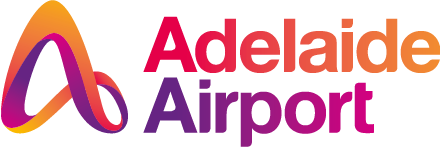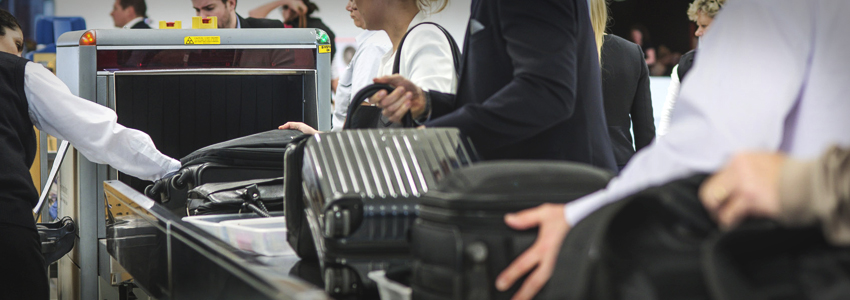Useful Links & FAQs
Department of Agriculture
Australian Quarantine and Inspection Service manage quarantine controls at our borders to minimise the risk of exotic pests and diseases entering the country. AQIS also provides import and export inspection and certification to help retain Australia’s highly favourable animal, plant and human health status and wide access to overseas export markets.
Australian Border Force
Australian Border Force manages the security and integrity of Australia’s borders. It works closely with other government and international agencies, in particular the Australian Federal Police, the Australian Quarantine and Inspection Service, the Department of Immigration and Citizenship and the Department of Defence, to detect and deter unlawful movement of goods and people across the border.
Smartraveller
The Australian Government’s travel advisory and consular assistance service for Australian residents.
Australian Department of Foreign Affairs and Trade
Information on the economic and political climate in other countries.
Department of Home Affairs
This Department regulates the aviation security environment. Aviation and Maritime Security (AMS) Division formerly the Office of Transport Security, is Australia’s security regulator for aviation, maritime and the offshore oil and gas industries. Visit the website for more information.
TravelSECURE
The Australian Government has developed a traveller-friendly website, TravelSECURE, to help people navigate the security checks at the airport quickly and easily and to ensure they are adequately prepared for their trip.
TravelSECURE is an easy-to-use resource that consolidates traveller and transport security information, videos and fact sheets in one easy-to-find place.
FAQs
Travelling with powders, liquids, aerosols and gels
Changes to international security screening: From 30 June 2018, people travelling internationally will be required to present all powders in their carry-on baggage separately for screening click here for details.
Can I take liquids, aerosols or gels through the security?
Yes, you can take all of these through the first security screening point (provided they are not classified as a dangerous good or prohibited item) for more information, click here. There is no restriction on anyone entering the sterile area or passengers travelling domestically over and above the individual policies of airlines.
Can I take liquids, aerosols or gels through security if I am travelling overseas?
Yes, but only if they fit within the current requirements. All liquids, aerosols and gels that you intend to take in your carry-on baggage must be in containers 100ml in volume or smaller (this is about equal to 100g in weight). They must be carried in a transparent, re-sealable, airtight bag
For more information on what you can take through security when travelling internationally, click here.
If you are travelling overseas, you will have the opportunity to buy drinks after the security check. For a list of retail outlets in the international departure lounge click here.
What is a liquid, aerosol or gel (LAG)?
LAGs are classified as any liquid, gel, cream, paste or substance in an aerosol container. This includes water, drinks, toiletries, perfumes, cosmetics and food items that contain high volumes of liquids (soups, yoghurts). It also applies to jams and preserves.
How many LAGS under 100ml can I carry?
You can carry as many items as fit into the plastic bag, but this bag must be sealed and meet the airline’s baggage weight limit requirements
Is it the amount of liquid or the size of the container that is measured?
The container size is measured, regardless of how much liquid it contains. It must also state the capacity of the container.
Can I take duty free items on board the aircraft?
Some oversized liquids purchased as duty or tax free items may be carried. These must be in a clear, sealed, tamper proof bag with the receipt on the inside of the bag. If you are unsure, please contact your airline. If in any doubt, you should ensure that your goods are checked into the hold of the aircraft.
Will I have to go through a body scanner?
Random body scanning checks are required for international passengers leaving Australia. There is no requirement if you are travelling within Australia.
Security body scanners provide an additional layer of security and are a completely safe and extremely capable method of screening passengers.
How do body scanners work?
The scanners use millimetre wave imaging to locate objects on a person hidden beneath clothing. They work by bouncing millimetre waves off a person’s skin to produce an outline image of the person’s body, showing any concealed, potentially dangerous objects.
The operator does not see an image of the person, only an indication of possible threat areas on a generic human outline (“gingerbread man”). The Aviation Protection Officer then uses this information to decide whether a physical search is required.
What happens if I am scanned?
Security scanners are much less intrusive process than a physical search. Selected passengers are asked to stand in a particular position in the machine, with sometimes a requirement to rotate to a different position. The whole process takes only a matter of seconds.
Who has to go through body scanners?
Any person travelling internationally may be randomly selected for a body scan.
How will my privacy be protected?
Extensive safeguards have been built into the machines as privacy of individuals is of paramount importance. When you enter the screening point, you are taken to consent to each screening procedure, except frisk search. If a frisk search is required, you will be asked to consent to that process. You have the right to refuse your consent to frisk or to any other screening process, however, if you refuse to be screened, you will not be allowed to pass through the security screening point or board your flight. Frisk searches can be conducted in a private room if requested.
Are body scanners safe?
Yes. Health and safety regulators have concluded that the MMW dose received is much less than using a mobile phone or being in the sun. Body scanners are completely safe for pregnant women and anyone with medical implants.
Who is exempt?
There are no exemptions. This would undermine the effectiveness of these additional security measures.
Can I request to be searched privately?
Yes, you can request a private search for either yourself or your hand baggage, if you would prefer not to be searched in a public area. If you require a private search, ask the Aviation Protection Officer before the screening process starts and we will arrange this for you. All private searches are witnessed by an additional Officer and you can be accompanied should you wish.
What can I take on board?
Check with your airline as requirements do differ. For a full list of items currently prohibited under Australian law, click here:
Do I have to remove shoes & jewellery?
If an alarms sounds by the metal detector, you will be asked by the screening officer to remove any metal objects and place them on the trays provided. You will then be asked to walk through the metal detector a second time.
What exactly can I carry in my hand baggage when travelling overseas?
You can carry anything that is not listed in the Prohibited Items and Dangerous Goods list. Carry on must meet your airline’s baggage weight limit requirements.
If you are worried about specific items that normally wouldn’t comply with size requirements, we suggest you check with your airline before travelling.
For more information click here.
I’m travelling with children; do the same security rules apply?
Check with your airline for specific allowances when travelling with children. Prams and strollers require x-ray at the security screening point.
Can I take my baby’s milk through security?
There are no limits to the amount of milk powder that may be carried. Bottled water is available at the shops after security and on board your flight.
The usual restrictions to liquids (100ml maximum carried in a sealed, transparent bag) do not apply. However, please note that the amount carried should be sufficient for your trip and will be subject to security screening. This rule also applies to jars of baby food.
Can I take child seats with me?
We recommend you check with your airline. You can take seats through security although most airlines request that child seats are checked in to the hold.
I need to travel with medicines and medical equipment. What can I take on board?
You may still carry prescription medicines, medical equipment, baby products and non-prescription medicines that you need for the flight through the screening point. Proof of need may be required. For Liquids, Aerosols and Gels amounts fewer than 100ml should be placed in a sealed, transparent, resealable bag. If the container is larger than 100ml, it will need to be screened at the security checkpoint.
Non-prescription medication may be taken on board. They should be properly marked with a professionally printed label identifying the medication and the manufacturer’s name or pharmaceutical label.

